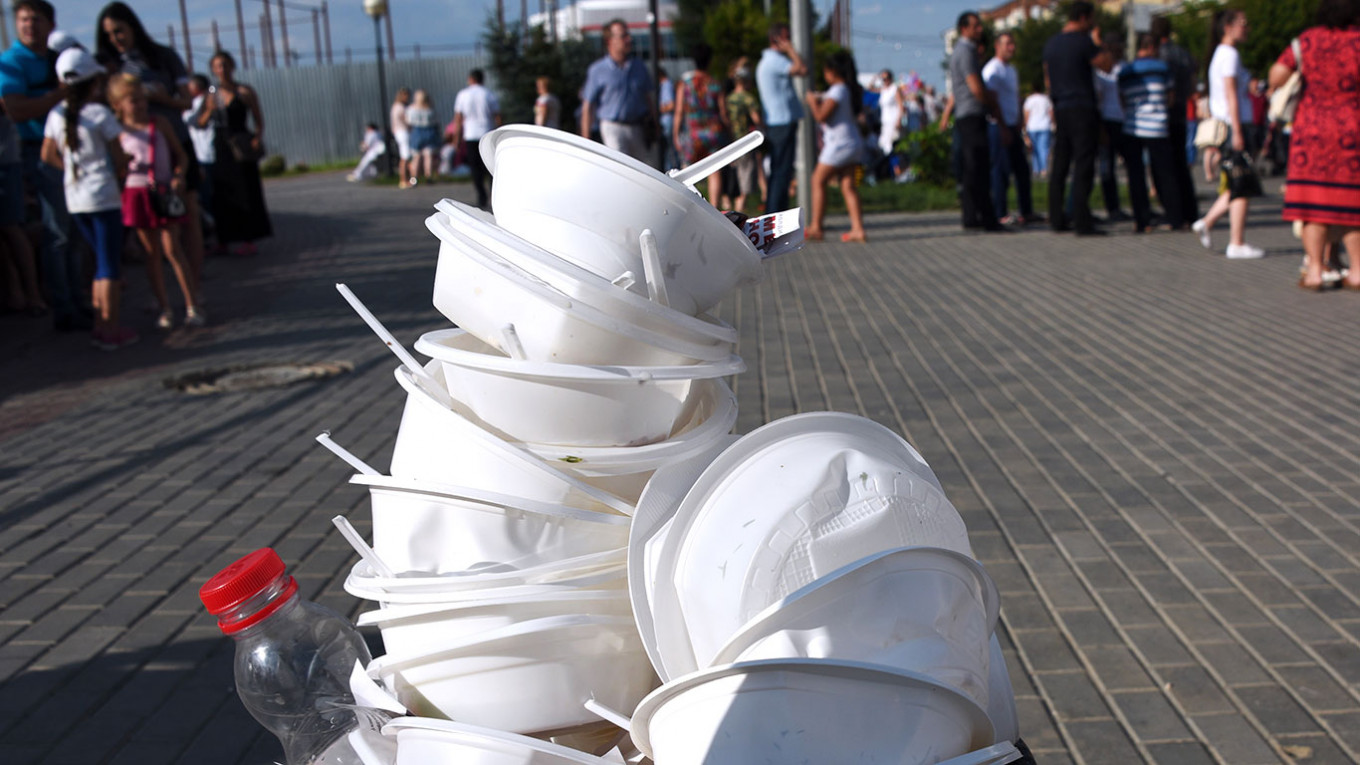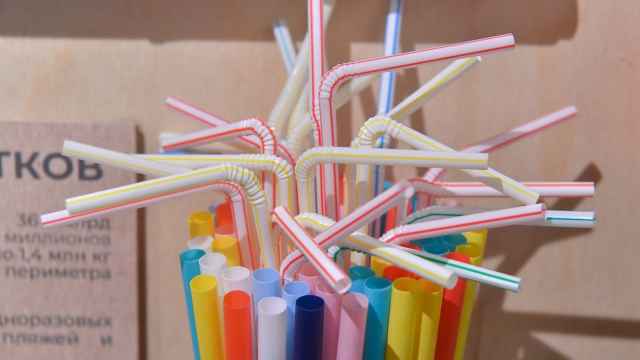Russia plans to ban the use of disposable plastics by 2024, Natural Resources and Environment Minister Alexander Kozlov said Thursday.
Banned goods would include disposable plastic straws, plates, glasses, lids and appliances; coffee capsules; cotton swabs; opaque and colored PET (thermoplastic polyester) bottles; boxes and packs for tobacco products; blister packaging (except for medicines); egg cartons; and several types of bags.
“We’re proposing to introduce the ban gradually so production can be reorganized. In 2024, the ban should be final,” the state-run TASS news agency quoted Kozlov as saying on the sidelines of the Eastern Economic Forum in Vladivostok.
Kozlov said his ministry and the Industry and Trade Ministry are coordinating on the list of 28 disposable plastic products that would fall under the ban.
He also suggested finding alternatives to single-use plastics such as packaging made from natural materials like wood or paper.
“We suggest replacing opaque plastic bottles with transparent ones that are easy to recycle. Disposable plates can be made from pulp cartons; straws can be made of wood or replaced with special paper ones. All these technologies exist and are already being used," Kozlov said.
In May, Deputy Prime Minister Viktoria Abramchenko said the government plans to impose a legislative ban on certain types of plastic products, including straws, cotton swabs and disposable tableware.
The planned ban comes as countries seek to take greater action to cut down on plastic pollution, much of which ends up in the world’s oceans. In 2019, 170 countries including Russia pledged to “significantly reduce” their use of single-use plastics by 2030.
A Message from The Moscow Times:
Dear readers,
We are facing unprecedented challenges. Russia's Prosecutor General's Office has designated The Moscow Times as an "undesirable" organization, criminalizing our work and putting our staff at risk of prosecution. This follows our earlier unjust labeling as a "foreign agent."
These actions are direct attempts to silence independent journalism in Russia. The authorities claim our work "discredits the decisions of the Russian leadership." We see things differently: we strive to provide accurate, unbiased reporting on Russia.
We, the journalists of The Moscow Times, refuse to be silenced. But to continue our work, we need your help.
Your support, no matter how small, makes a world of difference. If you can, please support us monthly starting from just $2. It's quick to set up, and every contribution makes a significant impact.
By supporting The Moscow Times, you're defending open, independent journalism in the face of repression. Thank you for standing with us.
Remind me later.







